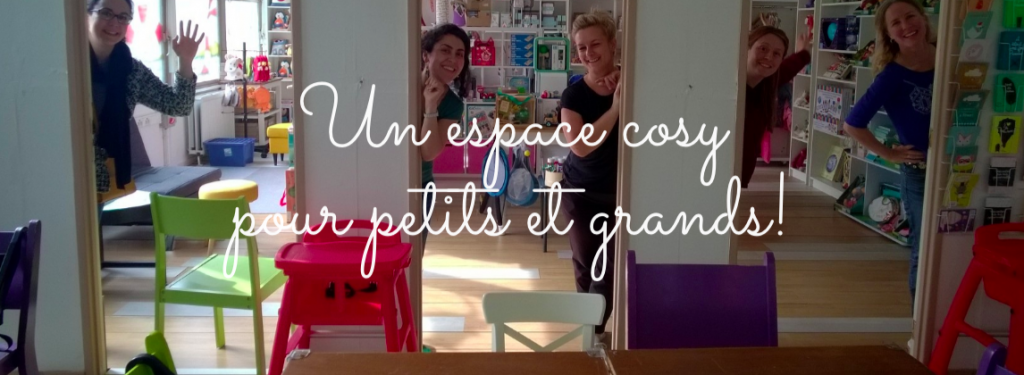In September I followed Growing Europe, a series of events on migrant entrepreneurship in Europe run each Thursday of the month. It was a collaborative effort of three projects that work to boost migrant entrepreneurship: European Migrant Entrepreneurship Network (EMEN), Network for Migrant Entrepreneurs to Scale Up and Grow (M-UP) and Migrant Acceleration for Growth Network for Entrepreneurship Training (MAGNET). The Growing Europe event itself was dedicated to discussing various elements of such entrepreneurship, from new trends, support tools, integration, stakeholders’ points of view, the impact of COVID-19 and more besides.
[Why are immigrants more entrepreneurial? from Harvard Business Review is an excellent read at this point because there is too much of interest to attempt a paraphrase!]
Over the four Thursdays there were 12 different sessions, of which I joined two that interested me, both as a ComDev student and for my work with the EU Global Diaspora Facility (EUDiF):
- Digitalisation: what role can new ICT tools and services play in supporting migrant entrepreneurs? (Day 3)
- Narratives on Migrant Entrepreneurship (Day 4)
Day 3: Shiny new ICT tools
The first session, 17 September, on new digitalisation featured presentations from three migrant-led and migrant community-focused ICT organisations:
- Code Your Future (CYF): A non-profit organisation based in the UK that provides free training to refugees and people from disadvantaged communities to become web developers. Training is given by volunteers from the tech industry, emphasising learning through project work. CYF graduates are supported in job-hunting.
- Mygrants: A social enterprise that has created ICT tools to build trust between immigrants and service providers and support migrant integration into the job market of the receiving country. Its web app’s first service is to provide information about rights and obligations within the Italian and European asylum system. Its second service is training of hard and soft skills through micro-learning based on market shortages in Italy; completion of e-learning is linked to dynamic CVs and feeds into the public authorities’ recruitment system; a pilot-scheme with private sector recruitment is currently underway.
- Molengeek: A ‘tech-ecosystem’ in the Molenbeek region of Brussels which seeks to make the technology sector accessible to all, regardless of origins or qualifications. It provides free training, has a start-up incubator and coworking space, and organises workshops and events like hackathons. Molengeek has replicated its model in Padua, Italy and will do so soon in the Netherlands.
The three organisations share several things in common: firstly that they were each set up by people with experience of migration, whether as migrants themselves or second/third generation. Secondly, each organisation reinforces the link between migration and technology: CYF and Molengeek both deliver digital training to people with a migration background, providing participants with the skills to work in tech as employees, and/or develop an entrepreneurial, tech-based idea into a viable business. Similarly, Mygrants delivers learning opportunities to (recently arrived) migrants, but rather than digital upskilling, it delivers its training opportunities via its digital platform and links this into the local employment system. Although the focus isn’t necessarily on digital skills, the delivery method will likely result in enhanced digital skills as a byproduct of using Mygrants’ software.
In answering the question of the session’s title, CYF and Molengeek propose digital literacy as the ICT tools for potential migrant entrepreneurs, whilst Mygrants is the ICT tool in its own right, leveraging gamification and cash incentives to motivate migrant users to upskill, whilst using the data to facilitate talent profiling and recruitment and to generate credit scores for migrants’ later use with financial institutions such as banks and insurers.
Whilst each project in isolation is an admirable initiative with potential for replication in other countries and contexts (within and beyond the migration sphere), the combination of these three organisations’ interlinking approaches to support people of migrant background in skills development and access to employment opportunities through technology gives a very positive outlook for how ICT can be used in various ways to improve employment and entrepreneurial opportunities and therefore potential for inclusion, integration and social change.
Day 4: Narratives on Migrant Entrepreneurship
A week later, on 24 September, I joined a fascinating session held on the final day of the Growing Europe series that focused on narratives around migrant entrepreneurship.
Once upon a time
Appropriately, the session centred a specific story, that of Brussels-based Rachida Bouganzir. Rachida is of Moroccan descent and she is the founder of Baby Café Haricot Magique, a social project that provides a socialising space for parents of small children, and runs events and courses delivered by volunteers. Rachida described her project, how she came to take it on, expand and relocate it, as well as reactions from her family and friends, and the challenges she faces as a small business owner, including the most recent ones linked to the Covid-19 pandemic.

Solutions journalism
Subsequently, Catherine Edwards, journalist at The Local, talked us through the concept of ‘solutions journalism’ and how this could be applied when reporting/communicating about Rachida’s business as a working example of storytelling about migrant entrepreneurship.
Catherine illustrated her presentation with comparative examples of different ways migrants are depicted in the media (on and offline), hammering home the point that wording matters and greatly influences a story’s lasting message. She explained that the media portrayals of migration tend to focus on extremes of representation: anonymised horror stories at one end of the spectrum, super-human tales of success at the other. Seeing the proliferation of such binaries goes some way to explaining why ‘migrants’ are lumped together as one category and either vilified, victimised or lauded, rarely presented as relatable equals to the reader.
Journalism, research, policy – the word cycle
Cleverly making the most of the speaker order, Juan Francisco Alvarado Valenzuela from the Amsterdam University of Applied Sciences then connected the dots between Rachida’s story of ‘migrant entrepreneurship’, solutions journalism and the importance of wording from journalism, to research and policy.
Juan explained that whilst for academic purposes it can be useful to delineate between entrepreneurs and migrant entrepreneurs, we need to ask ourselves whether this is helpful for intended audiences in any form of writing and communication. Migrants are not a homogeneous group, nor are entrepreneurs, so ‘migrant entrepreneurs’ cannot be a singularly identifiable group either. Yet these terms are used frequently in the public sphere, mediated by journalists and the public (e.g. via social media), thus framing narratives which in turn influence both public and policy without a critical reflection on meaning.
Adjective pruning
Rachida admitted that she did initially not label herself as a ‘migrant entrepreneur’, but that assuming the label has led to opportunities that she would not have had access to without adding the adjective. Potential ‘local’ (meaning non-migrant background, for want of a better word) entrepreneurs often have greater opportunities and information without realising: multi-generational networks of friends and family who understand the local business and investment environment better than more recent arrivals to a country. Initiatives and policies that specifically target migrant entrepreneurs can support those without the equivalent opportunities to catalyse their idea and create a viable business.
When I think back to the speakers on day 3 on ICT tools I can see other examples of where self-identifying as a ‘migrant entrepreneur’ has brought the benefits of networking, community and funding opportunities from public authorities, as well as private sector seeking CSR partnerships. Clearly the term can be good for those with a migration background, good for businesses, good for society and good for integration. But do we have to make it a permanent feature, or can – somehow – the phenomenon of ‘migrant entrepreneurship’ be used as a narrative stepping stone to a stage when we don’t need the qualifying adjective? Can policies that today seek to level the playing field between migrant entrepreneurs and ‘local’ entrepreneurs also plan to remove the inequality that currently exists?
Growing forward
There is something very positive about the idea of ‘Growing Europe’ through migrant entrepreneurship; it celebrates the innovation and determination which permeates both migration and entrepreneurship, providing potential narratives around the dispersal effect of migration, people landing like seeds in new lands, putting down roots and pushing up businesses with the trans-national soil of the digital world allowing ideas to cross-pollinate and spread…the metaphor just keeps on giving! The main lesson I take away from a ComDev perspective, however, is the need for development practitioners, policy makers and project implementers to constantly question our use of language, especially when terms become de rigueur. Not only do we need to carefully review whether a policy or project is fit for purpose, but how it contributes to the narrative in which it partakes because this will influence the future of support.
Whilst we wait for policymaking and action plans at global level to build this into their sustainability and exit strategies, we, as practitioners and observers, need to constantly question ourselves and the people we seek to support to ensure that ‘nothing about without’ is sewn (or sown to get the last out of the metaphor!) into the fabric of policies, projects and communication.
Further reading:
Growing Europe event resources
Global Entrepreneurship Monitor Report 2012
Migrant Entrepreneurship in OECD Countries 2011
MEGA (Migrant Entrepreneurship Growth Agenda)
Franke, N., Vandor P., (27.10.16) Why are immigrants more entrepreneurial? Harvard Business Review.
Tam, S., (27.01.20) How immigrants drive entrepreneurship and innovation Behavioural Scientist


